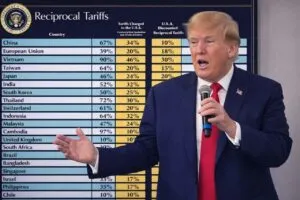Imagine waking up one day to find that you are unable to vote, unable to attend the same schools as others, or even unable to sit at the same lunch counter. This was a reality for many Americans less than a century ago.
Civil rights movements have been pivotal in transforming this reality, ensuring that everyone, regardless of race, gender, or background, can enjoy basic freedoms. In America, these movements have not only changed laws but have also reshaped societal norms and attitudes.
Table of Contents
ToggleRoots of Civil Rights Movements
The struggle for civil rights in America dates back to the abolitionist movement in the 19th century. Abolitionists like Frederick Douglass and Harriet Tubman fought tirelessly to end slavery. Their efforts laid the groundwork for future movements by highlighting the moral and ethical issues surrounding inequality and injustice.
1950s and 60s
The most iconic civil rights movement in American history took place during the 1950s and 60s. Leaders like Martin Luther King Jr., Rosa Parks, and Malcolm X became symbols of the fight against racial segregation and discrimination.
This movement achieved significant victories, including the Civil Rights Act of 1964 and the Voting Rights Act of 1965, which legally ended segregation and protected voting rights for African Americans.
Ongoing impact
Civil rights movements have led to profound legal changes that continue to protect freedoms today. The landmark Supreme Court case Brown v. Board of Education in 1954 declared state laws establishing separate public schools for black and white students unconstitutional.
This case set a precedent for future legal battles against segregation and discrimination.
Social change
Beyond legal victories, civil rights movements have driven social change. The fight for equality has reshaped societal attitudes, making discrimination less acceptable. Movements like Black Lives Matter have brought attention to ongoing racial injustices, prompting discussions and actions to address these issues.
Modern movements
Black Lives Matter
Black Lives Matter (BLM) emerged in response to the deaths of African Americans at the hands of law enforcement. BLM has grown into a global movement, highlighting systemic racism and advocating for police reform.
Through protests, social media campaigns, and community organizing, BLM continues the legacy of earlier civil rights movements by pushing for equality and justice.
LGBTQ+ Rights Movement
The LGBTQ+ rights movement has made significant strides in recent decades. The fight for marriage equality culminated in the Supreme Court’s decision in Obergefell v. Hodges in 2015, which legalized same-sex marriage nationwide.
The movement continues to advocate for the rights of LGBTQ+ individuals, including protections against discrimination in employment and housing.
Women’s Rights Movement
The women’s rights movement has evolved from the fight for suffrage to addressing issues like workplace equality, reproductive rights, and violence against women. The #MeToo movement has brought attention to sexual harassment and assault, leading to increased awareness and changes in workplace policies and societal attitudes.
Challenges faced by modern Civil Rights Movements
1. Political opposition
Modern civil rights movements often face political opposition. Efforts to roll back voting rights protections and undermine affirmative action policies illustrate the ongoing challenges these movements encounter.
Despite these obstacles, activists continue to push for policies that promote equality and justice.
2. Social media and misinformation
While social media has been a powerful tool for organizing and raising awareness, it also presents challenges. Misinformation and online harassment can undermine the efforts of civil rights movements. Activists must navigate these digital landscapes carefully to maintain credibility and support.
What’s the role of young people in these movements?
Young people have always played a crucial role in civil rights movements. During the 1960s, students were at the forefront of protests and sit-ins. Today, youth activists continue this legacy, using social media and other digital tools to organize and advocate for change.
Their energy and passion drive movements forward, ensuring that the fight for freedom remains vibrant and dynamic.
Education is of utmost importance!
Educating young people about the history and importance of civil rights movements is essential. Schools and communities must prioritize teaching about these movements to foster a sense of responsibility and activism among the next generation. Awareness and understanding of past struggles can inspire young people to continue the fight for equality and justice.
Global Influence of American Civil Rights Movements
American civil rights movements have had a significant impact beyond the United States. The strategies and successes of these movements have inspired activists worldwide. Movements for racial equality, gender rights, and LGBTQ+ rights in other countries often draw from the experiences and lessons of American civil rights struggles.
Global solidarity
There is a growing sense of global solidarity among civil rights movements. Activists from different countries support each other’s causes, recognizing the interconnectedness of their struggles. This solidarity strengthens the global fight for freedom and equality, showing that these issues transcend national borders.
The bottom line
Civil rights movements have profoundly shaped the freedoms we enjoy in America today. From the abolitionists to modern activists, these movements have fought tirelessly against injustice and inequality.
Their efforts have led to significant legal reforms, social changes, and a more inclusive society. As new challenges arise, the spirit of these movements continues to inspire and drive the fight for freedom and equality.












